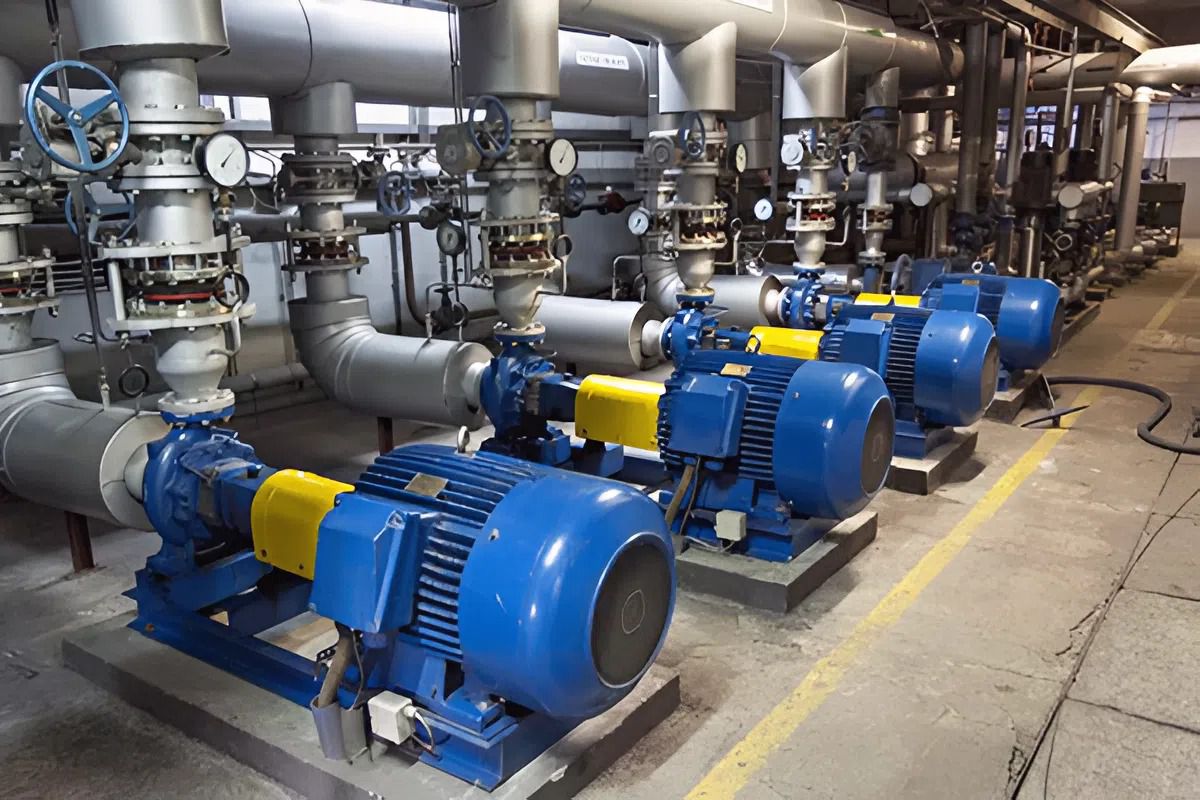Industrial Pump
Mastering the Role of Industrial Pumps in Production Systems
It is no coincidence that experienced engineers always dedicate time to deeply understand pumps before designing or upgrading a system. Did you know that besides merely creating fluid flow, a pump directly influences the pressure, temperature, energy consumption, and the overall safety of the entire process? Looking deeper, this equipment reflects the level of technical management expertise within the whole factory.
Unlike residential pumps, industrial pumps are engineered for continuous high-intensity operation, elevated pressure, and harsh environments. Most of these devices utilize three-phase power, wear-resistant materials, and overload protection mechanisms to mitigate the risk of downtime.
Applications of Industrial Pumps in Various Manufacturing Industries
Industrial pumps are present in almost every sector of manufacturing. In the food industry, they are used to pump high-viscosity liquids such as milk, syrups, fish sauce, cooking oil, or beer and spirits. In the chemical sector, pumps must endure corrosive environments and ensure absolute sealing for safe operation. In water treatment, centrifugal, diaphragm, and metering pumps play a pivotal role in maintaining stable flow and precise fluid control.
Even in the paper, paint, ink, and mining industries, pumps remain indispensable tools for transporting sludge, thick substances, or solutions containing solid particles.
How to Select the Appropriate Industrial Pump?
One of the most common mistakes is choosing a pump based solely on power output or price. In reality, correct selection begins with thoroughly understanding the characteristics of the pumped fluid, the required pressure, environmental conditions, and the frequency of operation.
For instance, if the liquid has high viscosity or contains solid particles, options like a screw pump or a diaphragm pump will be more effective than a centrifugal pump. Conversely, in cases requiring high flow rates and stable pressure, a centrifugal model like the Bangpu DG (0.3–280 m³/h) is the suitable choice. Focusing on the material composition such as stainless steel, cast iron, or engineered plastics—will help the equipment withstand corrosive chemicals, high temperatures, or high humidity.
Reference products at: Industrial Pumps Distributed by EMIN
Optimizing Operation and Maintenance in Practice
Any machine operation will only remain stable for years if it is correctly maintained on a regular basis. Checking vibration, noise, temperature, and flow rate periodically helps in early detection of wear or shaft misalignment. Furthermore, the quality of the power source and the cleanliness of the pumped fluid directly impact the equipment's lifespan.

Many engineers routinely maintain a schedule for replacing pump seals, lubricating oil, and cleaning impellers every three or six months, depending on the load level. This seemingly minor habit helps prevent sudden machine shutdowns that can interrupt production.
The information above provides an overview and practical experience to help you better understand the characteristics, applications, and correct selection of industrial pumps tailored to various operating environments. For businesses seeking stable pumping solutions, EMIN currently offers a wide range of genuine products, providing flexible options for every production requirement.
-
-
-
-
-
-
-
-
-
-
-
-
-
-
-
-
-
-
-
-
-
-
-
-
